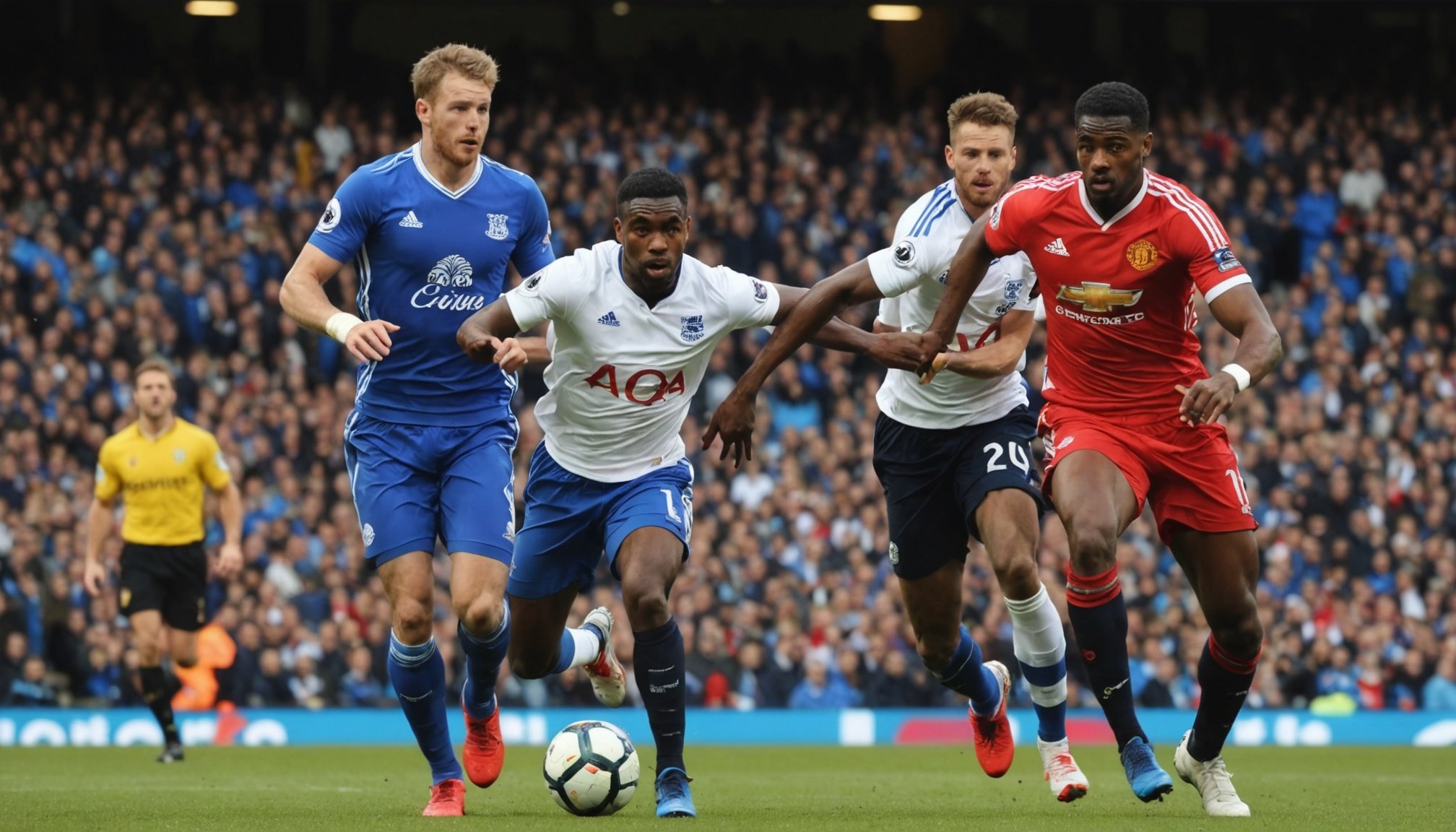The Role of UK Sports Media in Shaping Athlete Wellbeing
Understanding the influence and impact
The UK sports media influence plays a critical role in shaping athlete wellbeing, especially regarding mental health. Media outlets across television, print, and digital platforms significantly affect how athletes are perceived and how they perceive themselves. Coverage styles range from highly analytical to sensationalist, which can either support athletes positively or contribute to detrimental pressure.
In the same genre : What are the latest trends in UK sports nutrition and fitness?
Athlete mental health is increasingly recognized as a vital issue, with UK sports media influence directly affecting public awareness and the conversations around this topic. When media coverage is responsible, it encourages transparency and fosters empathy, helping athletes manage the mental strain of competition and public scrutiny.
The media’s impact frequently depends on tone and context. Positive portrayals and informed discussions highlight athletes’ struggles and achievements, promoting balanced views. However, intense scrutiny or negative headlines can exacerbate stress, anxiety, or lead to burnout. This dual potential makes UK sports media a powerful actor in athlete wellbeing.
Topic to read : How Can the Evolution of Training Techniques Impact the Future of UK Sports?
Given the prominence of media channels, their evolving role in athlete wellbeing cannot be overstated. Understanding this dynamic is essential for stakeholders who aim to create a supportive sports environment.
Positive Effects of UK Sports Media on Athletes’ Wellbeing
Understanding how media can uplift and support
The positive media impact on athletes in the UK has become increasingly recognised as a vital factor in promoting mental health awareness. When media outlets highlight stories of athlete perseverance or vulnerability, it can profoundly boost morale. For example, thoughtful coverage of athletes overcoming mental health challenges helps destigmatise these issues and encourages others to seek support.
Supportive journalism plays a key role in fostering public understanding. By emphasising the personal journeys behind sporting success, the media creates a more empathetic audience. This nurtures support for athletes not just as performers, but as individuals facing real emotional and psychological pressures.
Moreover, media that promotes mental health discussions contributes to athlete resilience. It normalises seeking help and celebrating small victories, which can lessen the loneliness many athletes feel. The UK sports media’s responsible and positive framing of these topics shapes a culture that values wellbeing, not just athletic achievement. This influence is essential for athletes navigating intense public scrutiny and pressure.
Encouragingly, more UK media professionals now strive to balance competitive coverage with stories that uplift and support, ensuring athletes receive the recognition and care they deserve.
Negative Impacts: Pressure and Scrutiny from Media Coverage
The negative media effects on athletes are significant, often intensifying public pressure and scrutiny. Constant media attention amplifies criticism, leading to heightened psychological stress. When athletes perform under the magnifying glass of media coverage, every mistake or underperformance can trigger widespread judgment, which can be overwhelming. This persistent evaluation impacts their wellbeing profoundly.
Social media, in particular, magnifies these pressures. Platforms allow instant feedback, often harsh and relentless, crowding athletes with criticism and negative comments. This increased athlete scrutiny creates a toxic environment detrimental to mental health. Many athletes report feelings of anxiety, depression, and burnout linked to media-fueled pressure.
The relentless spotlight can lead to serious mental health challenges. Some athletes withdraw from competition to protect themselves, while others seek professional help to cope with the strain. Understanding and addressing these negative media effects are essential to support athlete wellbeing and foster a healthier public discourse. Recognising the toll of media scrutiny helps promote empathy and solutions for those in the harsh glare of attention.
Expert Insights: Psychological Effects and Athlete Testimonies
Psychologists and mental health professionals emphasize the significant impact media-related stress can have on athletes. Expert commentary highlights how constant scrutiny and public expectations intensify pressures, often leading to anxiety and burnout. According to psychological studies, the persistent media spotlight acts as a chronic stressor, increasing emotional consequences such as depression and decreased self-esteem.
Athlete experience confirms these findings. Many share how media portrayal can distort self-image and amplify fears about performance, negatively affecting mental well-being. Some athletes describe a feeling of loss of control when their narratives are shaped externally, causing frustration and distress.
Research further points out the role of social media, where athletes face unfiltered criticism beyond traditional press, exacerbating both stress and emotional vulnerability. Mental health experts advocate for media literacy and emotional resilience training to mitigate these effects. Understanding these factors equips athletes and their support teams to navigate pressures more effectively.
By synthesizing expert commentary and athlete testimonies, the connection between psychological strain and media exposure becomes clear, informing strategies to protect mental health while maintaining career performance.
Media Responsibility and Evolving Trends in UK Sports Reporting
Exploring how media ethics shape coverage of athlete wellbeing
Media ethics in UK sports journalism have increasingly emphasized responsible reporting, especially surrounding sensitive topics like athlete mental health. Historically, some media outlets prioritized sensational headlines over accurate portrayal, which often worsened stigma. Now, there is a stronger commitment to highlight mental health challenges with empathy and factual accuracy, demonstrating accountability towards athletes and audiences alike.
This shift is part of broader trends in sports journalism, where reporters adopt a holistic view of athlete wellbeing—not only focusing on performance outcomes but also on psychological and emotional health. These trends encourage media professionals to verify information carefully, avoid speculation, and engage expert voices to provide context. Responsible reporting engages readers by presenting balanced narratives rather than dramatizing personal struggles.
An evolving practice includes collaborating with mental health specialists and organizations to enrich sports news coverage responsibly. This ensures athletes’ experiences are conveyed respectfully, promoting awareness and understanding. As UK sports media continues adapting, these positive trends support destigmatization while fostering an informed, compassionate public dialogue. Such media responsibility is crucial in constructing healthier relationships between the sports community and society’s broader values on wellbeing.
Recommendations for Improving Athlete Wellbeing in the Media Sphere
To foster healthier athlete wellbeing, solutions must address both media conduct and athlete support structures. Media guidelines can play a crucial role in shaping how athletes are portrayed. Outlets should adopt clear policies that emphasize respect, privacy, and mental health awareness. Implementing training programs for journalists on sensitive reporting can reduce harmful narratives and sensationalism.
Sports institutions have a responsibility to create support systems that buffer athletes from negative media pressure. These systems can include access to mental health professionals familiar with the unique stressors athletes face. Establishing confidential communication channels for athletes to report media-related concerns encourages proactive intervention.
Athletes themselves can benefit from media literacy education, empowering them to navigate press interactions effectively and set personal boundaries. Such training equips them with tools to manage public exposure and fosters resilience.
By integrating these solutions—media guidelines, enhanced athlete support, and education—stakeholders contribute to a more responsible media sphere. This holistic approach ensures coverage respects athletes’ wellbeing while maintaining public engagement, promoting sustainable success for both media and sport.






